On the Way from Assembly Point Atzdemeriam to Transit Camp in Teda, Ethiopia
Aliza Auerbach
1991
Image
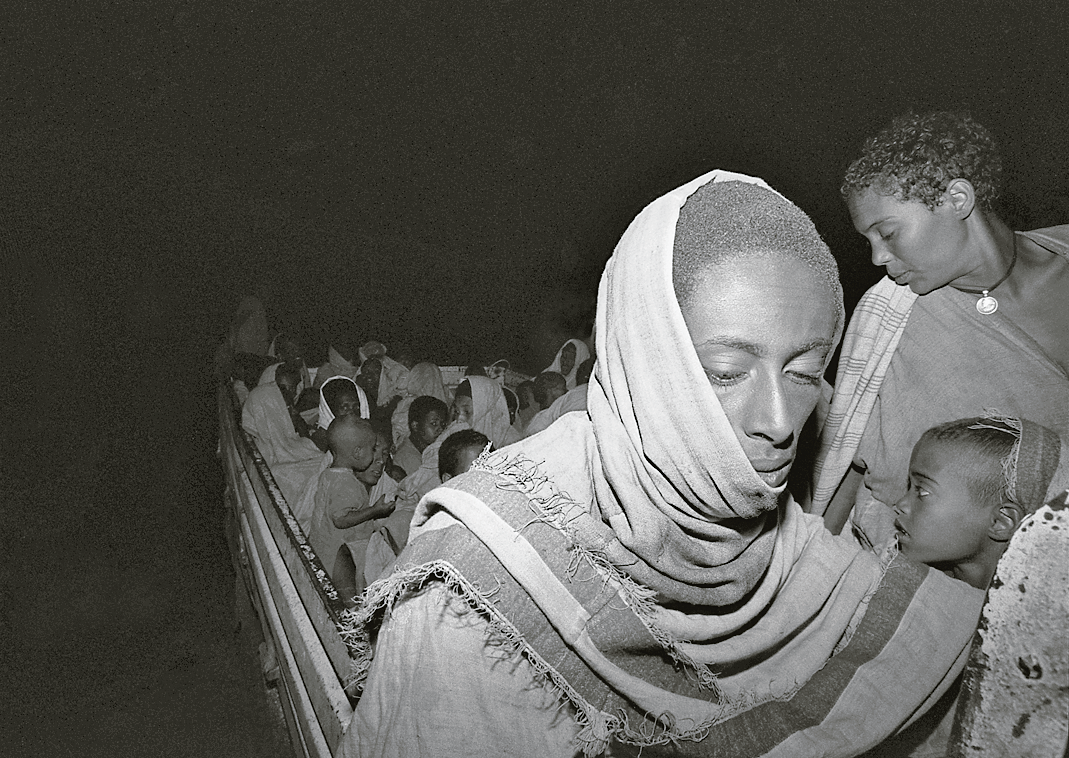
Engage with this Source
Creator Bio
Aliza Auerbach
1940–2016
Israeli photographer Aliza Auerbach published her photographs in books, including Pioneers (1990), a documentary look at the first settlers of kibbutzim and moshavim; Aliya (1996), a chronicle of the journey of Ethiopian and Russian immigrants to Israel; and Working Women (2003), pictures of women at work in more than forty countries. She has won the Nikon Photo Contest International (1996; 1998) and the UNESCO International Photo Contest (1998). Auerbach’s photographs are at the Israel Museum, the Tel Aviv Museum of Art, and the Museum for Israeli Art.
You may also like
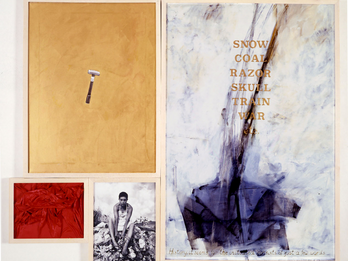
Razor
Weinfeld, the daughter of Holocaust survivors, produced artworks addressing the question of who she would have been if she had herself been a prisoner in a concentration camp? Would she have been…
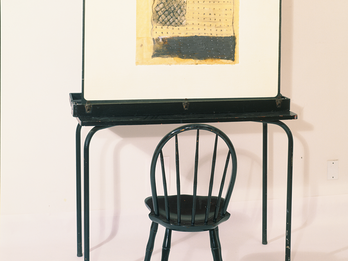
The Empty Chair
The empty chair was a recurrent image in the work of Israeli artists. Because of its associations with the (fallen) throne of the biblical King David, it was sometimes used to represent a fallen…
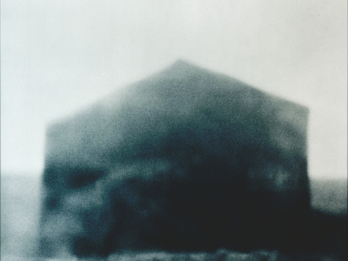
Outside #3
In one of her early photography projects, Rovner took Polaroids of an abandoned Bedouin shack in the desert and reprinted them in different ways. Here the shack appears blurred, ghostly, as if seen…
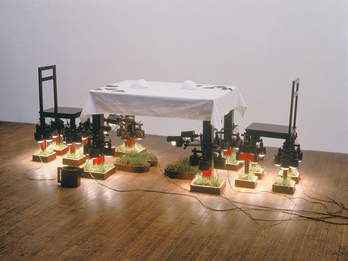
Indoor Sukkah
Wexler is an artist and architect who also makes furniture. Over the years, he has often reinvented the sukkah, the booth in which Jews eat meals during Sukkot, an autumn holiday commemorating the…
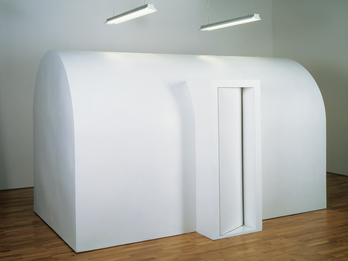
Cell No. 1
The “Cellules,” or Cells, were six tiny all-white living spaces that Absalon planned to install in Tokyo, Paris, Zurich, New York, Tel Aviv, and Frankfurt. He intended to live in them, so they were…
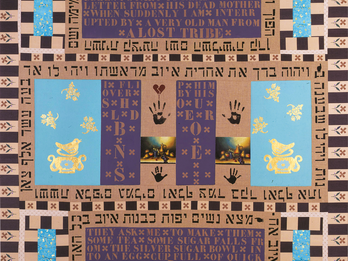
David’s Room
Among the inspirations for Bar Lev’s paintings were American patchwork quilts, Mexican and Native American art, stained-glass windows, Russian constructivism, and pop art. She combined patterns and…

